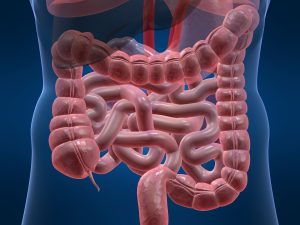
Leaky Gut, Chronic Disease, & Long Term Health
Leaky Gut This blog discusses the very important health issue of leaky gut. You will learn: What is the gut & the gut microbiome What
If you are a doctor or clinician looking to make a bigger impact on the world, have more job satisfaction and have up-to-date protocols and treatment solutions for your patients, check out our free functional medicine training led by functional medicine expert, Dr. Miles Nichols below.
Plus additional BONUS training videos on treating tough cases of brain fog and cognitive impairment!!
** Please note: If you want the short summary version of this article, then please click here **
Aging
Aging is a natural and progressive process. Over time, the body slows down, we have less energy, we become older, physically weaker and are at higher risk of disease. On a physiological level, aging is brought on by several biological factors that damage cells and DNA. As these processes happen, cells function less well and we age.
Some of the biological changes that cause aging include (Shade, 2020):
Mitochondrial downregulation: Mitochondria are the powerhouses of the cells that produce ATP or cellular energy. They become downregulated with time. As mitochondria function less efficiently and cellular energy production slows, less ATP is produced, cells have less energy and we feel less energetic.
DNA: Through various mechanisms, some of which are toxin exposure, stress and infections, DNA becomes damaged with time.
Telomere length decreases: A telomere is the area of DNA at the end of a chromosome (a DNA molecule containing genetic information). Telomeres protect the ends of chromosomes from damage. When a cell divides, the telomere gets a little shorter. With time, telomeres become too short for the cell to successfully divide and the cell dies. Declining telomere length causes the chromosome ends to become exposed and triggers DNA damage. As telomere shortening limits the number of times cells can divide, it slowly leads to smaller amounts of cells in important organs. The rate of telomere shortening is thought to indicate the pace at which a person ages (Shammas, 2011).
Stem cell exhaustion: Stem cell numbers and their ability to renew themselves decrease with age. This ultimately leads to aging symptoms like frailty and a weakened immune system. Without healthy stem cells, tissues and organs are unable to recover from damage and begin to fail.
Intercellular communication: Cells send and receive chemical messages to coordinate the actions of organs, tissues and cells. Intercellular communication is important for cells to function optimally. With aging, this cellular communication becomes dysregulated and cells lose the ability to communicate with other cells. Disease can develop if communication between cells becomes impaired.
Nutrient sensing ability declines: Cells sense, recognize and respond to different types of fuel such as glucose or ATP. The type and amount of fuel available to a cell determines which enzymes it needs to utilize that fuel. The cell membrane surface can communicate to the cell nucleus which fuel is available. The cell then knows which nutrients are available and can produce the enzymes needed for that specific nutrient. These nutrient sensing pathways become deregulated and less effective with age (Micó V, 2017).
Brain: Cognition becomes impaired. Over time, neurons in the brain become less efficient and oxidative damage starts to occur. This leads to cognitive dysfunction.
Why does the Aging Process happen?
One key reason for aging is that NAD+ naturally declines over time (Poddar SK, 2019). Decreasing energy production is largely due to less NAD+ in the various organs (Poddar SK, 2019).
What is NAD+?
NAD+, or Nicotinamide Adenine Dinucleotide, is a metabolic enzyme found in every cell of the body and is a master regulator of metabolism. Cells cannot survive without NAD+. It is important for many biological processes, and in particular, for the aging process (Poddar SK, 2019). NAD+ is essential for many enzymatic reactions. It is involved in cell death, gene expression, neuroinflammation, DNA repair and longevity (Nadeeshani H, 2022).
As we age, levels of NAD+ decline. By the time a person reaches middle age, at around 45 years old, NAD+ will have fallen by 50% to half of what a younger person has (Schultz MB, 2017).
The decline in NAD+ affects mitochondrial function, energy production and other cellular functions. Inadequate NAD+ contributes to poor cellular communication between mitochondria and nucleus at the cellular level and between adipose tissue and hypothalamus at the systemic level (Nadeeshani H, 2022). This interruption in mitochondria and nuclear communication reduces mitochondrial function, leading to the complications and diseases that happen with age.
An increase in intracellular NAD+ boosts energy production and cellular repair (Shade, 2020). Increased NAD+ improves insulin sensitivity, repairs mitochondrial dysfunction and improves longevity (Shade, 2020). NAD+ has the ability to regenerate cells, such as muscle stem cells found in older mice (Nadeeshani H, 2022).
Why does NAD+ decrease with age?
Certain molecules in the body decrease NAD+ levels. Sirtuins, signaling proteins involved in longevity, are partly responsible (Schultz MB, 2017). Other NAD+ destroyers are PARPs (enzymes that regulate DNA). But the key issue is an increase, with age, in certain enzymes that consume and destroy NAD+ (Nadeeshani H, 2022). These enzymes are CD38 and BST1, with CD38 thought to have the most impact on reducing NAD+ levels (Schultz MB, 2017).
What triggers the decline in NAD+ with aging?
CD38 expression is regulated by NFkB. NFkB is a signaling protein that is involved in inflammation, immunity and cell proliferation (Tilstra JS, 2011). The NFkB signaling pathway is thought to be a key mediator of aging.
NFkB regulates the expression of cytokines (inflammatory immune system molecules), growth factors and genes that regulate apoptosis (automated cell death), cell cycle progression, cell senescence (cellular signaling and communication) and inflammation (Tilstra JS, 2011).
The NFkB pathway is activated by inflammation and, in particular, inflammaging or the low-grade inflammation that comes with aging (Schultz MB, 2017). As we age, inflammation activates this pathway, which increases CD38 and contributes to the decline in NAD+.
Can NMN help slow down aging?
If NAD+ levels can be boosted and kept high, we could delay the aging process (Nadeeshani H, 2022).
One way to raise NAD+ and slow aging is NMN. NMN, Nicotinamide Mononucleotide, is a NAD+ precursor that helps the body to produce more NAD+. A precursor is a substance used to make another molecule, especially in metabolic reactions.
NMN is a source of energy for cells as it helps to convert food to energy (Poddar SK, 2019). It is a signaling molecule, helping to maintain cellular communication and support NAD+ (Shade, 2020).
NMN can slow the genetic changes linked to aging, which can lengthen longevity. In studies in mice, NMN can extend life span by 29% (Nadeeshani H, 2022).
Plus additional BONUS training videos on treating tough cases of brain fog and cognitive impairment!!
Nicotinamide Adenine Dinucleotide Continued…
What exactly does NMN do?
NMN has many anti-aging and health benefits:
Metabolic Benefits
NMN repairs mitochondrial function and improves energy metabolism (Nadeeshani H, 2022). It improves metabolism and the metabolic complications related to obesity and diabetes (Poddar SK, 2019).
Obesity damages mitochondrial function. NMN can reduce weight gain in mice. NMN helps to improve cellular energy by stimulating mitochondria to produce more ATP (Poddar SK, 2019). It reduces the inflammatory response and oxidative stress (Nadeeshani H, 2022). This can help to decrease weight gain. Mice who were given NMN for 12 months had a lower body weight by 4% – 9% compared to controls (Poddar SK, 2019).
NMN can also enhance gene expression, preventing gene expression changes due to aging (Poddar SK, 2019). Specifically, NAD+ helps with sirtuin function (Nadeeshani H, 2022). Sirtuins, a type of protein, regulate various biological pathways. They turn certain genes on and off and protect cells from damage due to aging. An increase in NAD+ activates sirtuins to repair DNA.
NAD+ increases the activity of one sirtuin called SIRT1. SIRT1 can influence new mitochondria to form and lengthen life span. SIRT6, another sirtuin, helps maintain the length of telomeres. Longer telomeres are associated with longer life (Bonkowski MS, 2016). Sirtuins decrease DNA damage by stabilizing and lengthening telomeres. In mice, NMN can lengthen telomeres and decrease the risk of DNA damage (Nadeeshani H, 2022).
Insulin/Diabetes
Lower energy or ATP production due to less NAD+ causes muscle and mitochondria dysfunction. This can lead to insulin resistance, which is a key factor in developing type 2 diabetes. Other factors in diabetes are oxidative stress, inflammation and impaired lipid metabolism (Poddar SK, 2019). All of these can be improved by higher NMN to increase NAD+ (Poddar SK, 2019). Higher NAD+ improves insulin sensitivity and lipid profile in diabetic and obese mice (Nadeeshani H, 2022).
Inflammation
NMN can reduce the inflammation related to aging. It decreases adipose tissue inflammation that comes with age (Mills KF, 2016). In studies, older mice are more responsive to NMN and its effects on reduced inflammaging than younger mice (Shade, 2020).
Cognition
NMN slows cognitive decline in mice with Alzheimer’s disease. It increases the survival of neurons, improves energy metabolism and reduces reactive oxygen species (Shade, 2020). It improves neuron function in the brain, helping with Alzheimer’s disease and other neurodegenerative diseases (Shade, 2020).
The cognitive decline seen in Alzheimer’s is partially due to β amyloid plaque build-up. NMN reduces the production of β amyloid plaque (Poddar SK, 2019). It may also help maintain the integrity of the blood brain barrier, preventing toxins from entering the brain (Shade, 2020).
Heart Health
Ischemia is a condition of restricted blood flow and oxygen to a part of the body. Cardiac ischemia is decreased blood flow and oxygen to the heart muscle. NMN can protect the heart from ischemia injury (Shade, 2020). NMN can reverse arterial dysfunction by decreasing oxidative stress (Nadeeshani H, 2022).
Gut Health
Gut health is the foundation of optimal health and NMN is very beneficial to gut health. It regulates gut microbiota (Huang P, 2021). It increases good gut bacteria and decreases harmful gut bacteria, which inhibits gut inflammation (Huang P, 2021).
NMN increases the amount of butyrate-producing gut bacteria (Huang P, 2021). Butyrate is a short chain fatty acid that is a major energy source for certain cells. Low butyrate levels can impair the intestinal barrier integrity (Huang P, 2021). An increase in butyrate-producing bacteria protects intestinal health and reduces leaky gut.
Higher NAD+ levels stimulate gut cells to secrete mucus, which improves the intestinal barrier (Huang P, 2021). This strengthens the tight junctions and mucus secretion. It protects intestinal mucosa, the gut lining and overall gut health (Huang P, 2021).
Eye health
NMN improves retina and eye function. It helps with corneal injury, macular degeneration and retinal degeneration (Mills KF, 2016).
What increases NMN?
NMN levels also naturally decrease with age (Shade, 2020). We can increase NMN levels through different methods.
NMN is found in some foods. Broccoli, cabbage, avocado, cucumber and tomato are good sources of NMN (Mills KF, 2016). Raw beef, meat and shrimp have NMN, although in lower amounts than these vegetables (Mills KF, 2016). Vitamin B3 is a building block for NAD+. Most NMN is made from vitamin B3 in the body (Shade, 2020).
It is hard to get enough NMN through diet. Dietary supplements are a stronger and better source of NMN to increase NAD+ levels in the body (Poddar SK, 2019). In supplement form, NMN is quickly absorbed and converted into NAD+.
How much NMN is needed?
There are no official guidelines on NMN dosing. Studies show no significant adverse effects from an NMN dose of 500mg or more per day.
Are there any Side Effects of NMN?
High amounts of some NAD+ boosting supplements can have digestive side effects such as nausea, diarrhea, flushing, stomach discomfort and indigestion (Huang P, 2021).
There is not much research on the long-term safety of NMN in humans unfortunately (Huang P, 2021). Short term doses have been found to have no adverse effects. One study showed that taking oral NMN (up to 300 mg/kg) for 1 year did not cause any adverse or toxic effects (Huang P, 2021).
Some studies have found that increased NAD+ in mice can cause cancer and cancerous tumors to grow faster (Nacarelli T, 2019). Through the mechanism of cellular senescence, there is concern that NAD+ could release tumor-promoting molecules and encourage the growth of cancer (Nacarelli T, 2019).
Cellular senescence is when aging, damaged cells stop dividing. This process can suppress cancer. It can also cause cells to produce inflammatory molecules (called senescence-associated secretory phenotype or SASP) that can promote cancer growth under certain conditions. With age, many old and senescent cells build up in the body. Studies have found that NAD+ metabolism governs proinflammatory SASP (Nacarelli T, 2019). Further research is needed to fully understand the role of NAD+ in cancer and the effects of increasing NAD+. Research today cannot prove definitively that high NAD+ levels actually promote cancer growth, but it is not disproven either.
Another safety concern is the quality of NMN supplements. As with all supplements, there are poor-quality products on the market. Some products may claim to be NMN, but cost a lot less. These may not be pure NMN. Price is a good indicator in this case as NMN is difficult to manufacture. So NMN supplements can be expected to be fairly expensive. A cheap product is not going to be pure NMN. Be aware that you need to find a high quality NMN supplement. We sell a high-grade liposomal NAD at our clinic. The liposomal version of NAD really helps with cellular absorption. Please call our office if you are interested in buying NMN supplements.
How else can we increase NAD+?
There are things we can do to increase NAD+. These include (Wang, 2014) and (Shade, 2020):
High-fat diets, alcohol and aging decrease NAD+ levels (Nadeeshani H, 2022). A diet high in saturated fat can decrease NAD+ in the liver and white adipose tissue (Poddar SK, 2019). Alcohol can interfere with NAD+’s role in maintaining overall metabolic processes and reduce the positive effects of NAD+ (French, 2016). Avoiding excessive alcohol will help to maintain NAD+.
If you are interested in anti-aging, then boosting NAD+ is key. NMN supplements can be a very effective way to do this.
** Please stay tuned for our next Blog! **
Does your current health situation look like this…
We specialize in finding answers and solutions for complicated chronic illness when people feel like they have tried everything. If this sounds like you, book a free call with us to see if we are the right fit for your health goals.





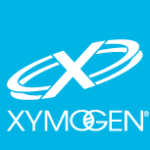
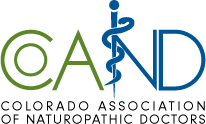

Leaky Gut This blog discusses the very important health issue of leaky gut. You will learn: What is the gut & the gut microbiome What

Research on Alzheimer’s disease is continuously looking for what causes the disease and how to better treat Alzheimer’s. A relatively new finding suggests that Alzheimer’s
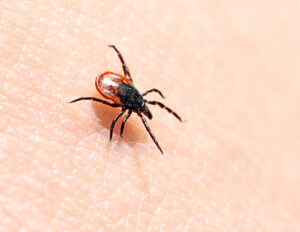
In this blog, we will look at Lyme Disease and answer the question ‘How does Lyme Disease become chronic?’ You will learn: What Lyme Disease

In this blog, we will look at the causes of Bartonella. You will learn: What Bartonella is and how it compares to Lyme Disease What
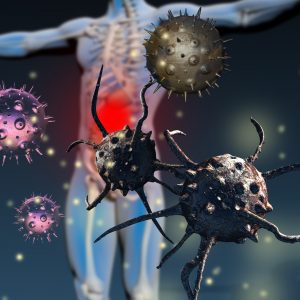
In this blog, we will look at the many symptoms of Bartonella. You will learn: What Bartonella is and what causes it What are the
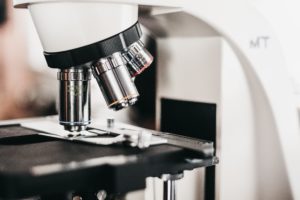
In this blog, we will look at Bartonella. You will learn: What Bartonella is and how it compares to Lyme Disease How Bartonella is spread

In this blog, we will look at Lyme Disease and answer the question ‘Is Lyme Disease curable?’ You will learn: What Lyme Disease is How

In this blog, we will look at Lyme Disease and the growing threat that it has become. You will learn: What Lyme Disease is How

In this blog, we will look at Lyme Disease and mental health. You will learn: How and why Lyme Disease can affect mental health How

In this blog, we will look at cognitive impairment & Alzheimer’s Disease in relation to various lifestyle factors. You will learn: How lifestyle can affect

Alpha Gal Syndrome Today’s article outlines a condition that is thought to affect, conservatively, 3% of the US population. However, there may be many undiagnosed

Can Lyme Disease Cause Joint Pain? In this blog, we will look at Lyme Disease and joint pain. You will learn: How & why Lyme
There was a problem reporting this post.
Please confirm you want to block this member.
You will no longer be able to:
Please allow a few minutes for this process to complete.

